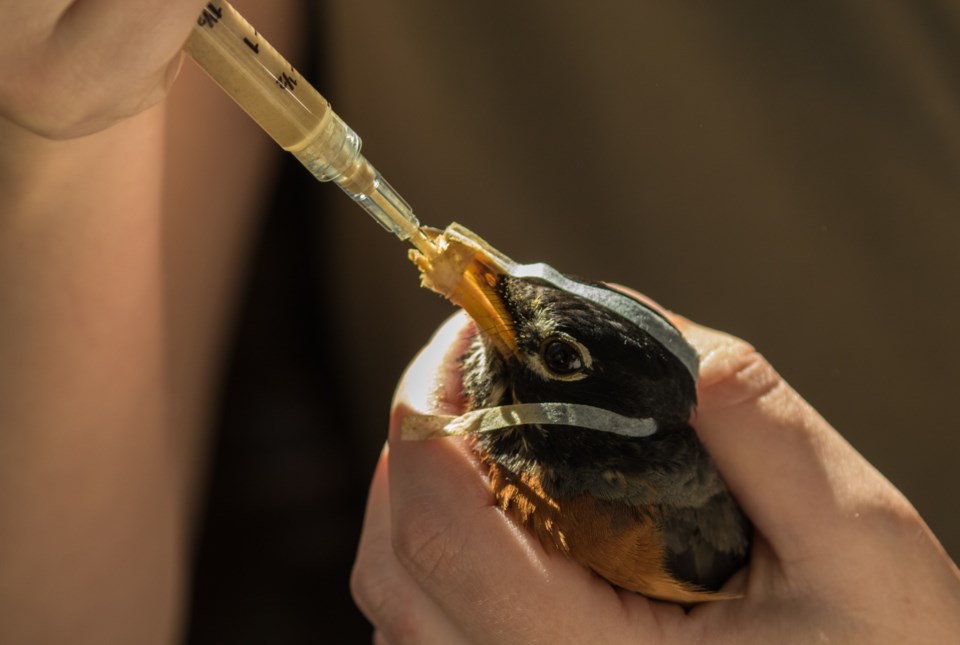ON HIS WAY: This adult robin hit a window extremely hard and broke his jaw as a result. His beak was hanging wide open and he was unable to close it.
The jaw had to be taped almost all the way shut so the bone could heal properly, and so he could still be fed every 15 minutes with a syringe. Doing well, he was beginning to eat on his own after three weeks. After another 10 days he moved in with other robins.
The next step was the outdoor flight cage. No difficulties there and he was soon released at Haslam Lake after more than a month’s care. Out of the cage in a flash, he was on his way.
Robins use both visual and auditory cues to find worms in the soil. Their seemingly random strut across the grass followed by cocking the head and then a dash and dig is both purposeful and effective.
Earthworms do live beneath clover as well as grass, a consideration if you are adding or converting your grass lawn to clover. Because robins forage largely on lawns, they are vulnerable to pesticide poisoning and can be an important indicator of chemical pollution.
Robins eat different types of food depending on the time of day, eating more earthworms in the morning and more fruit later in the afternoon. Robins will eat a lot of fruit in fall and winter. When they eat honeysuckle berries exclusively, they can become intoxicated.



